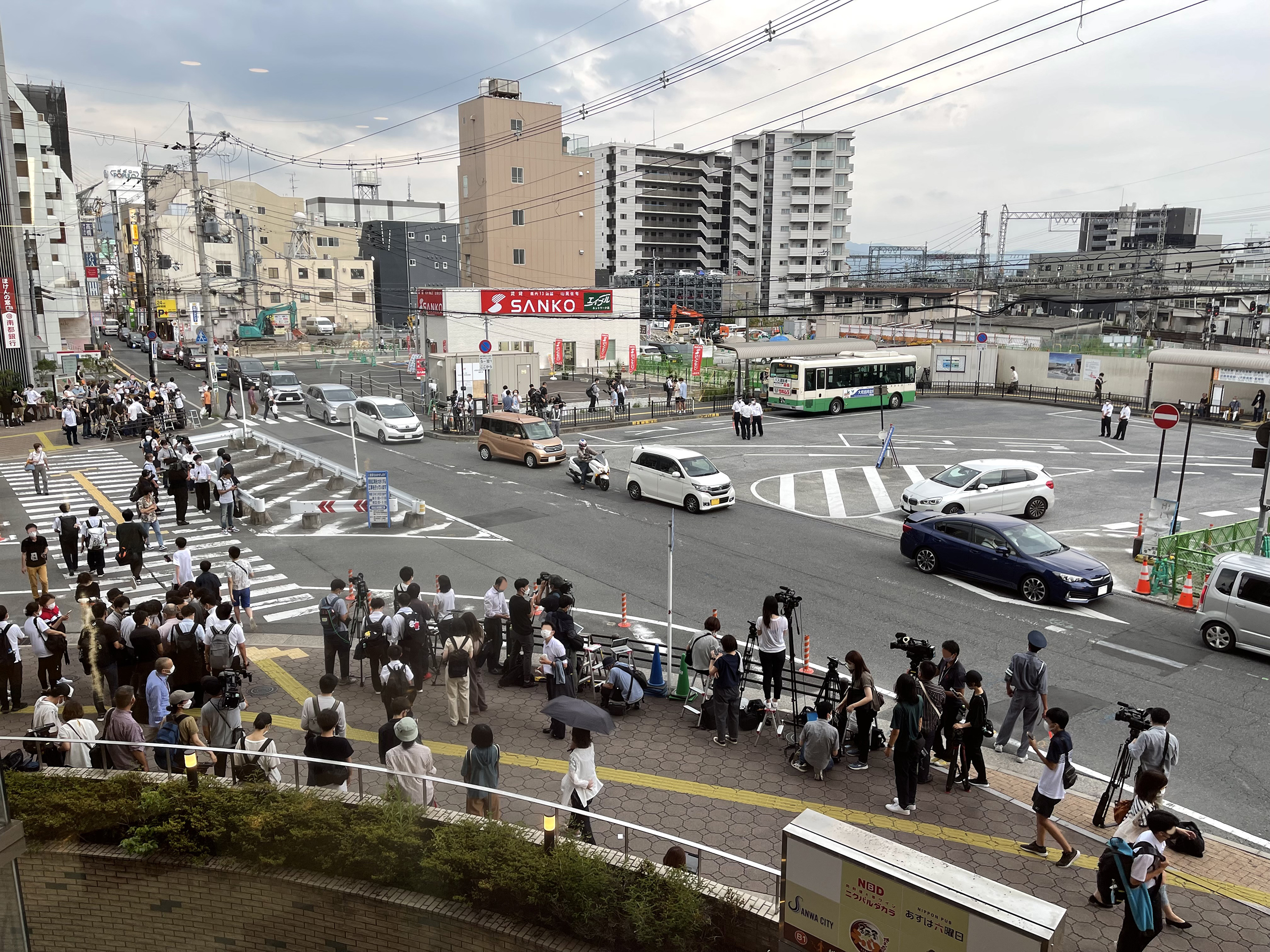Issue:
February 2023
Tetsuya Yamagami’s trial will reignite interest in Shinzo Abe’s murder. That is not good news for PM Kishida

Nearly six months after the assassination of Shinzo Abe, the suspect in his murder, Tetsuya Yamagami, was indicted on January 13.
Even though he was arrested immediately after shooting Abe as he was making a speech in Nara on July, Yamagami was not indicted within the usual 23-day period. Hearings were put on hold after prosecutors deemed it necessary for him to undergo psychological tests during his detention in Osaka. However, few media organizations explained why prosecutors had asked for more than five months to conduct their psychological assessment.
Media coverage of the 42-year-old’s motives deserves more scrutiny. In this, as in other high-profile cases – including the arrest and detention of Carlos Ghosn – information is coming from investigators, not from the suspect himself, and is provided only to certain sections of the media. In addition, the information that has been placed in the public realm represents only a fraction of the entire story. Yet only a small number of journalists have noted this weakness in coverage of the case – a problem that affects all investigations in which the suspect must wait for the start of the trial to speak publicly.
Experts completed their psychiatric evaluation on January 10 at the request of Yamagami's lawyers. Prosecutors had asked for an extension until February 6. The experts, who met Yamagami several times, decided that he was fit to stand trial. He has since been indicted on charges of murder and violating firearms laws. Japanese media have reported that he could face further charges relating to the manufacture of homemade weapons and damage to buildings.
The date for his trial has yet to be announced. According to his lawyers, it could still be several months away, given that the investigation has yet to conclude.
Domestic and international media differ in their assessment of how Yamagami could be treated by the criminal justice system. While some French media have suggested that he could face the death penalty, this has not been mentioned by the Japanese media and has been discounted by almost all lawyers and jurists interviewed by newspapers and broadcasters.
According to criminal law expert Koichi Kikuta, capital punishment would have been a possibility if Yamagami’s motive had been clearly political. As it stands, if the court accepts Yamagami’s reported motive – a personal resentment towards Abe – he could receive a "life" sentence of around 30 years. In addition, some experts have pointed out that the death penalty usually applies in cases of multiple murders.
The media’s treatment of Yamagami the suspect is complicated. He committed a heinous crime, gunning down an elected politician in broad daylight and in a crowded space. Yet he has attracted empathy from some members of the public, due to the perception that he is a “victim” of the Unification Church. In comments to investigators, he said he had targeted Abe over his purported ties to the church, whose official title is the Family Federation for World Peace and Unification. Yamagami said his mother, a member, had destroyed his family after she donated huge sums of money to the organization two decades ago.
Some newspapers have reported that Yamagami, who is studying English while awaiting trial, has received so many gifts during his detention that some are being kept at his uncle’s house.
Yamagami’s crime, and his motives, triggered months of media scrutiny of the church’s ties with Abe’s Liberal Democratic Party (LDP). The freelance journalist, Eito Suzuki, spent years delving into the subject, only to be ignored by the media. Now, however, he is in demand as a commentator.
Battered by record-low approval ratings, the prime minister, Fumio Kishida, has tried to shift the focus from the political fallout to his government’s attempts to help people who say their lives have been ruined by their parents’ membership of the church. An LDP-sponsored bill helping those and other victims quickly passed through both houses of the Diet, but the party has yet to properly confront its links with the church. Kishida has refused to discuss Shinzo Abe’s relationship with the Unification Church, citing the ongoing investigation into his murder. Kishida’s refusal to confront the issue is one reason why his approval ratings have plummeted. And he will not be able to duck the issue for long, since it is almost certain that the LDP-church connection will come under the spotlight again when Yamagami eventually testifies.
Yamagami’s alleged crime has generated commentary across the political spectrum, including the recent release of a documentary about the events leading up to Abe’s death by director Masao Adachi, a former member of the Japanese Red Army terrorist group. Given Adachi’s past, some will reasonably cast doubt on the film’s reliability.
The trial will attract huge media attention, not least because the jury will include include citizens alongside professional magistrates. The Abe assassination is also a big international story, so foreign reporters must soon start thinking about how they intend to cover the trial – which will be held in Nara – and how to broach the inevitable debate over the Unification Church’s place in Japanese politics and society.
Karyn Nishimura is a correspondent for the French daily newspaper Libération and Radio France.

